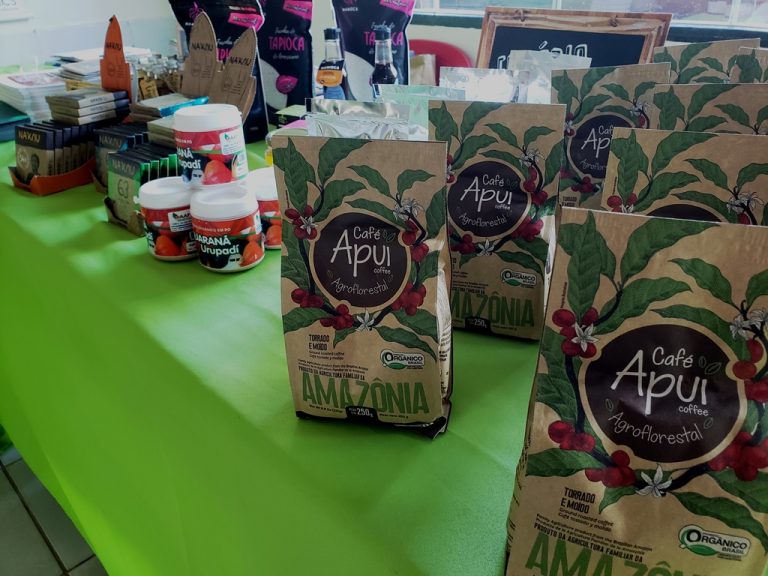
(English) Coffee from 100% Amazon terroir revives the forest and involves communities in agroforestry cultivation
by Mônica C. Ribeiro and Pedro Soares
Photo: Jonatas Machado
Originally posted on NYDF Platform
Coffee, the drink that clears our ‘morning fog,’ is a very common feature on the Brazilian table. Now, a variety of this fruit, the result of 100% Amazon agroforestry cultivation, is starting to appear in Brazilian stores: Apuí Agroforestry Coffee.
This coffee is a robustavariety– something new in a market that has grown used to arabica blends – and one whose terroir has surprised consumers. The certified organic version of the coffee has just been launched and the surprise goes far beyond the pleasant flavor when they get to know about the production chain’s development process.
Grown by small farmers in the municipality of Apuí in southern Amazonas state, Apuí Agroforestry Coffee is a product of the Institute for Conservation and Sustainable Development of the Amazon (Idesam) strategy to strengthen the low-carbon economy and recover forest areas while promoting income generation opportunities for their populations, based on the principle that guaranteeing forest inhabitants quality of life through income generation from sustainable processes will make these populations guardians of the Amazon region and its biodiversity.
Apuí is one of the regions in the state of Amazonas with high deforestation rates. At the beginning of the 1980s, as part of a strategy in place at the time to populate the north of the country, the National Institute for Colonization and Agrarian Reform (Incra) carried out a large-scale campaign to attract people from other parts of Brazil by donating plots of land for them to farm. Coffee started to be planted by the family farmers that settled there.
Difficulties in maintaining the plantations coupled with a decline in the product’s value led to a period of crisis in coffee growing, with average productivity falling to less than 10 bags per hectare during the following decade. Coffee farming was gradually being abandoned in favor of cattle breeding.
In 2006, Idesam started to operate in Apuí and soon realized that the coffee plantations that had been abandoned and were now in naturally regenerated shade were in a better condition than those that had been farmed in the sun. This discovery was the start of a dialog with those family farmers that showed an interest in new ways of producing coffee.
“We arrived at the municipality with one goal: to show the farmers and the population that coffee could be grown without deforesting new areas, while also promoting reforestation actions without using agrochemicals that are harmful to the environment and peoples’ health,” Ramom Morato, Idesam’s agroecology coordinator, explained.
When the partnership between Idesam and the municipality was set up, local coffee production was in decline. “Many farmers had abandoned their coffee plantations to work with other types of production, mainly cattle breeding. A lot of them were ‘recovered’ by the project’s idea and now cannot imagine themselves doing anything else,” Morato said.
Apuí Agroforestry Coffee is coordinated by Idesam in partnership with local farmers in Apuí. The overall aim is to foster and strengthen the local production chain of agroforestry coffee as a sustainable alternative for income generation and social growth.
After five years of work, the project has led to a spike in productivity and improvement in coffee quality, increasing the farmers’ income through agroforestry activities and contributing toward improving life in the countryside while reducing environmentally harmful practices, such as deforestation to open up new farming areas.
The development of this production chain included the creation of a network of seed collectors and a local coffee nursery, the Santa Luzia Nursery. Another important step was a partnership with a local businessman who looks after roasting the Apuí Agroforestry Coffee beans. “It is a very good project because of Idesam’s contribution to the coffee production sector. For this reason, I think we will be able to expand production in the municipality and add more value to coffee, thus increasing farmers’ income,” Estevão Anghinoni claims. Today, Apuí is the municipality that produces the largest amount of coffee in the state of Amazonas, and one where there is potential for expansion.
Apart from being traded in Manaus, Apuí Agroforestry Coffee is currently available at points of sale in Rio de Janeiro, São Paulo and Belo Horizonte. Furthermore, the variety with the organic seal that has just arrived is also targeting international markets.
“The demand for organic, sustainable products is a trend that has spread all over the world. Consumers are placing higher demands on quality, origin and fair trade, and Apuí Agroforestry Coffee meets all these requirements,” Mariano Cenamo, Idesam’s New Business Director, pointed out.
“We feel like we are a part of something greater when we think that all our work in the field is represented in that product, which may reach places that we never imagined it could,” said Maria Bernardete, 54, one of the agroecological organic coffee farmers.
Read the full article here.

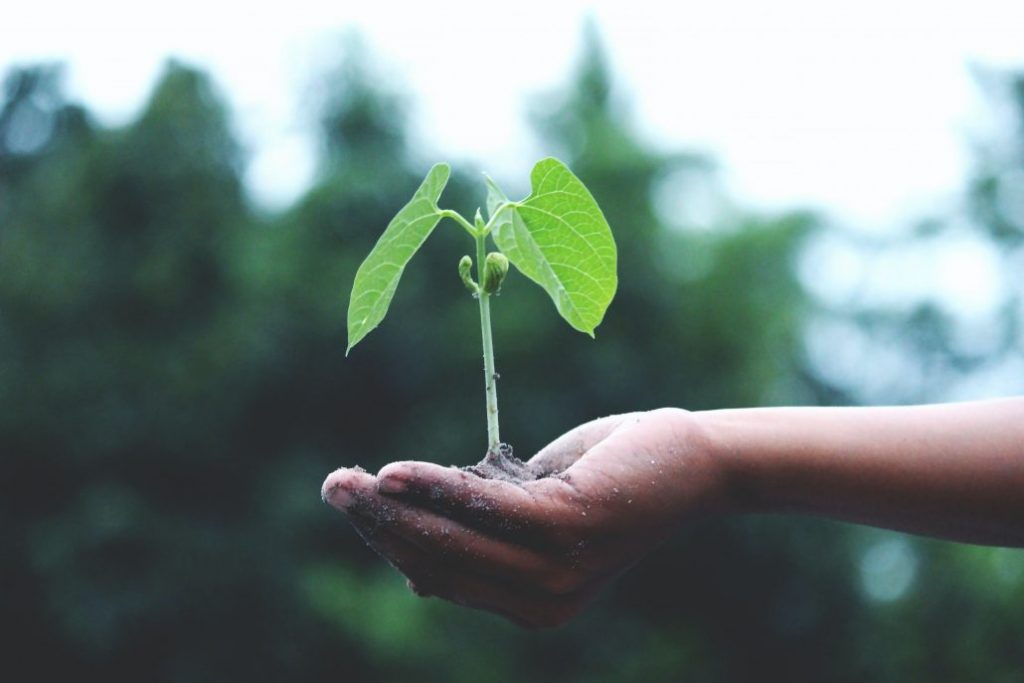

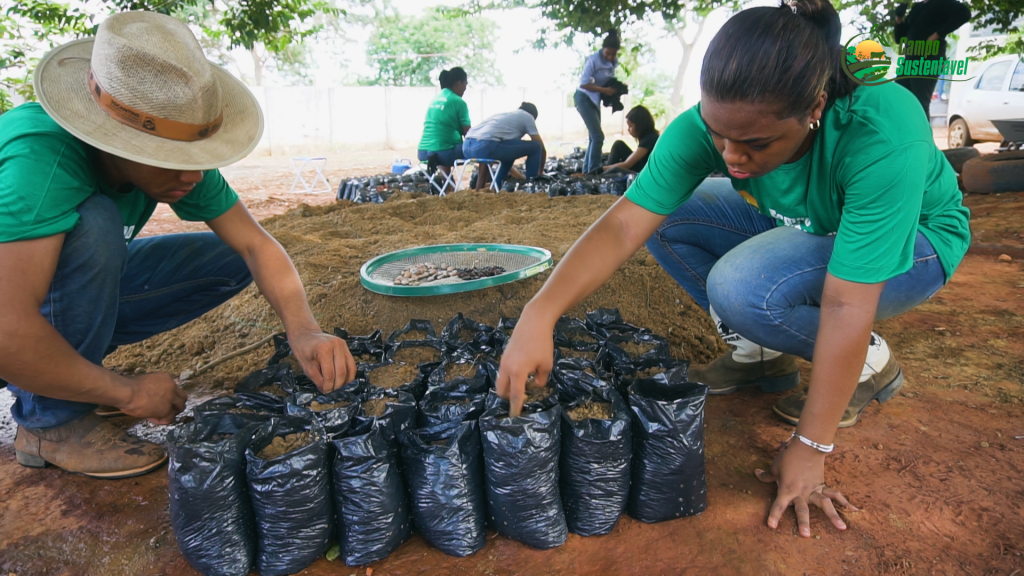
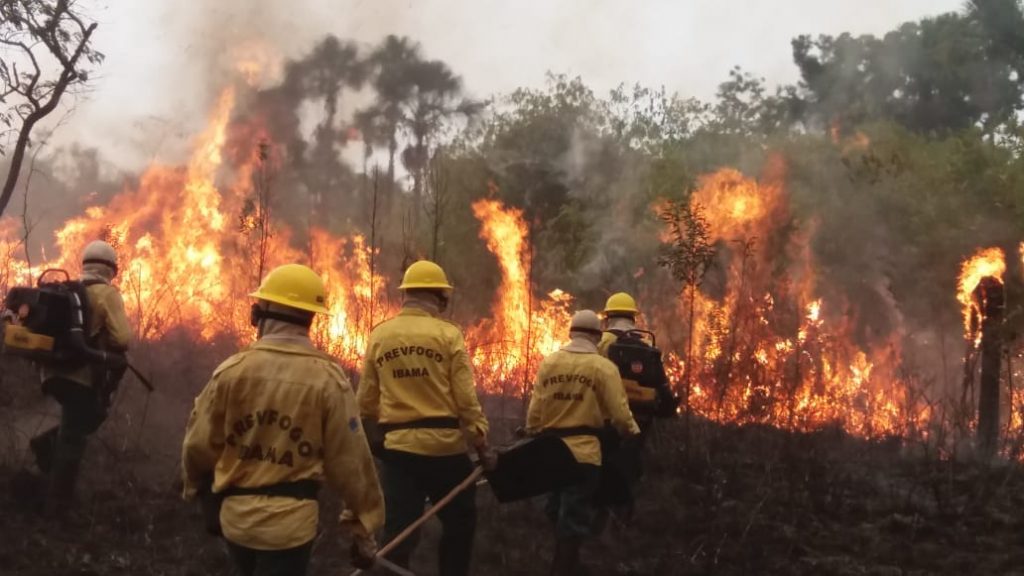
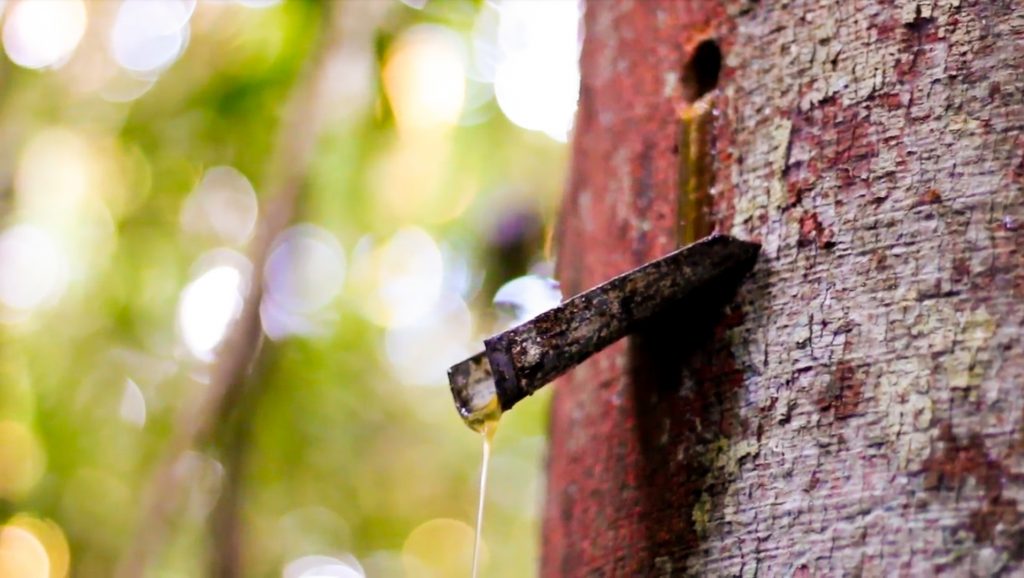
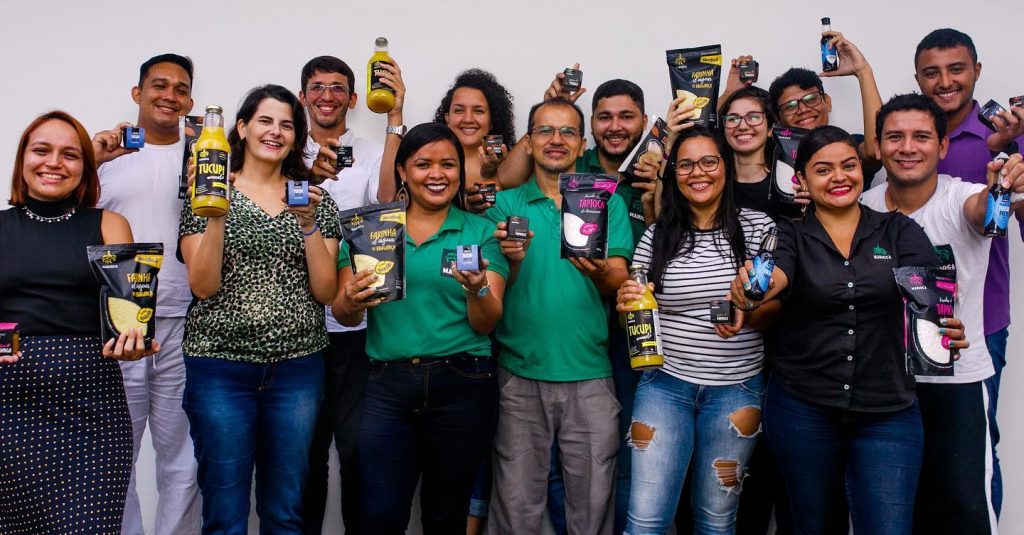
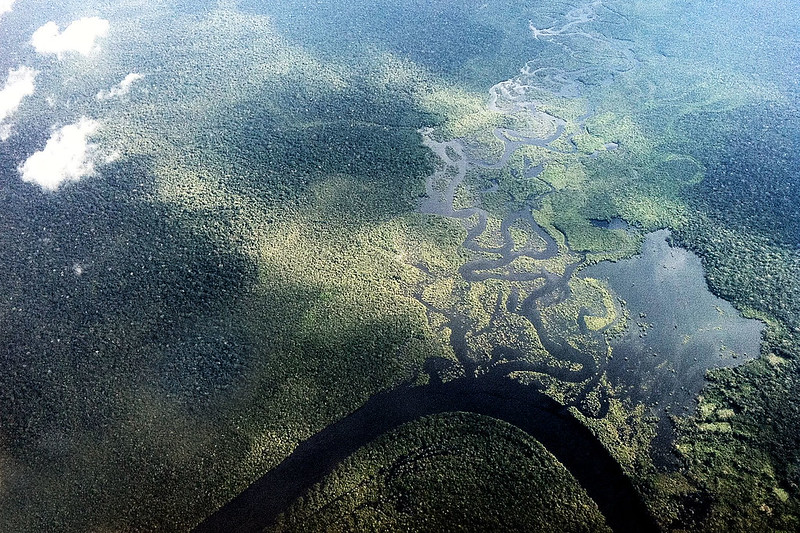
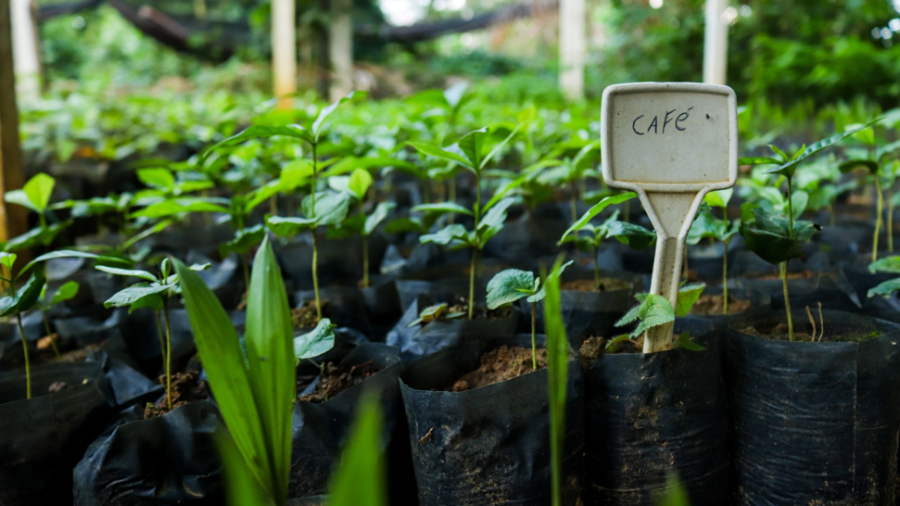


Leave a Reply